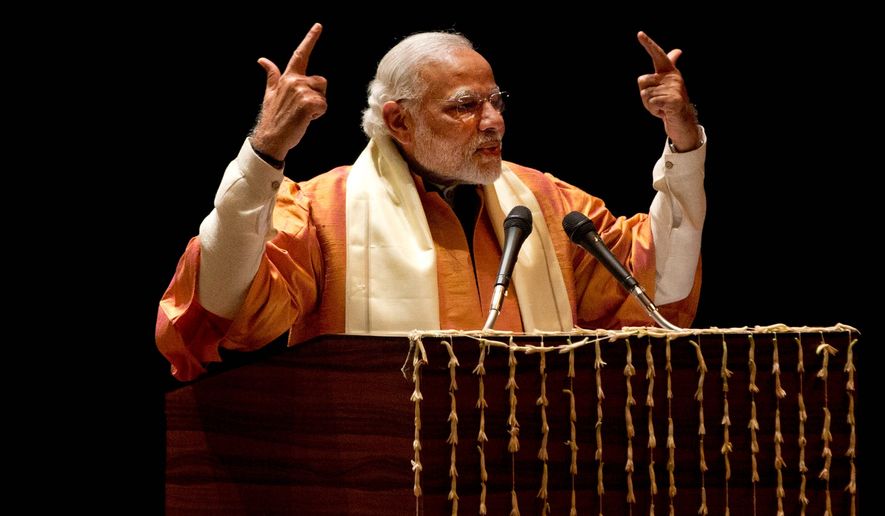VARANASI, India — A crackdown on private activist groups, especially Western and Christian organizations, has many here worried that Prime Minister Narendra Modi is selectively targeting organizations that don’t fit into his nationalist vision of India emphasizing Hinduism.
In the most notable instance, Greenpeace India is fighting for its survival in Indian courts after the government seizure of its accounts and temporary withdrawal of its license last year. The government said the organization was receiving foreign funds illegally.
An appeals court has allowed the Indian chapter of the environmental nongovernmental organization to remain open until a judge hears arguments in the case. In the meantime, Greenpeace India is limping along without funds from its international headquarters.
Vinuta Gopal, who stepped down as Greenpeace India’s interim executive director Jan. 20, said Mr. Modi’s regulators were targeting her group because of its advocacy for sustainable development that countered the prime minister’s relentless push for economic growth and support for business.
“The Home Ministry’s clumsy tactics to suppress free speech and dissenting voices are turning into a major national and international embarrassment for this government,” said Ms. Gopal. “This is an extension of the deep intolerance for differing viewpoints that sections of this government seem to harbor.”
Occupying an uneasy space between the state and individual voters, nongovernmental organizations that deal with hot-button issues including the environment, mining, ethnic rights and democracy-building have found themselves in the crosshairs in countries such as China and Russia.
Even Israel is facing heat from the Obama administration and American Jewish groups over a bill in the Knesset that would require nongovernmental organizations funded by foreign governments to label themselves as such in official meetings and in official reports. Critics of the bill in Israel and the U.S. say it amounts to a backdoor attempt to silence criticism of the government over its treatment of Palestinians and Israel’s Arab minority.
Greenpeace India is one of the five high-profile NGOs — including the United Theological College and the Salve Regina Charitable Trust, both based in Bangalore — whose operations have come under fire during Mr. Modi’s 1-year old tenure in office. Elected on a platform of reforming India’s notoriously backward business sector, the 65-year-old prime minister has also pursued a forceful agenda to promote Hindu values in a massive, diverse country that is around 80 percent Hindu but officially a secular democracy.
It didn’t start with the current government. Mr. Modi’s predecessors stopped foreign funding for almost 8,700 NGOs under a 2010 law that sought to reduce outside influence in the country, especially when it was linked to religious organizations that lawmakers feared could foment interfaith strife.
But Mr. Modi is now targeting popular groups that have long operated legally in India, a shift that NGO representatives say reflects his agenda to curtail non-Hindu groups.
“For sure, Hindu radical forces seek revenge on minorities,” said Lenin Raghuvanshi, founder of the People’s Vigilance Committee on Human Rights.
He acknowledged that foreign NGOs can be badly managed, sometimes deliberately so. “That’s why they disturb those whose agenda goes against their ideology,” he said.
The Indian government recently shut down the Kerala-based Catholic Charismatic Renewal Services — one of the five high-profile groups under fire — because the group reportedly failed to pay its annual income tax. But analysts say its real offense was maintaining popular social welfare programs in the spirit of a Western faith, said John Dayal, general secretary of All India Christian Council and member of National Integration Council, a government advisory board on religious and ethnic tolerance.
Selective targeting
Plenty of NGOs in India’s corruption-riddled economy maintain shoddy accounting practices, said Mr. Dayal, but officials in Mr. Modi’s government are selective in which ones they target.
http://www.washingtontimes.com/news/2016/jan/27/narendra-modi-selectively-targeting-western-christ/#.Vq-cB_NINXw.gmail

Leave a Reply